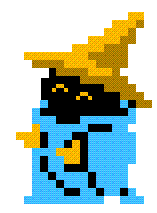I’ve been DMing a small group of new players. They’ve been literally “hit or miss” with combat. I know at least one is getting frustrated with combat because he can’t roll to save his life. I’m planning on throwing a swarm of small creatures at them next session. goblins, spiders, whatever. just small easily killed, easily hit creatures. Thing is I don’t want to do ‘initiative’ per se as I’m considering having a ton of these things. Anyone have any pointers?
I thought you were asking about how you would play a player who was a swarm. Like the ant guy on Rick & Morty. That would be interesting.
could be interesting for sure. might be my next NPC.
One way I’ve done swarms in the past is treating the swarm as an amorphous blob of things. At the end of the round, anyone in a space covered by the swarm takes a certain amount of damage.
Alternatively, if they’re more annoying than dangerous, anyone that takes an action in a swarm space rolls with disadvantage.
appreciate it, thanks!
Any reason the typical swarm statblocks won’t narratively work in such a case?
If you want to homebrew something, maybe make a swarm of x goblins with very low AC, say 3-5, with similar HP. When a character hits, they hit multiple goblins per attack assuming they roll double the given AC. In most hits they’d be taking down at least two or three targets is what I’m envisioning.
Then the swarm reacts after each attack, using x number of the swarm per attack, with maybe three different tiers of attacks available, and each goblin can only go once per round.
As such, as the battle wears on they make fewer and less effective attacks.
But this all recreates what a swarm statblock is to some extent.
Guess i didn’t realize there was an existing stat block. I don’t really want to do something like insects though. but yeah, you got the idea on the rest of it. this is pretty much what i was looking for. basically i want to give the on PC that can’t hit shit some optimism and start killing a few things instead of the druid that headbutts everything to death. Thank you
I know at least one is getting frustrated with combat because he can’t roll to save his life.
Yeah, that’s a feature of 5e combat, not a bug. It’s what makes me despise combat. I miss three times, wait 20 minutes for my turn to come back around, miss three more times, wait 18 minutes, and then combat is over.
Some of us are just cursed. The only workarounds I’ve found so far are:
-
Specialize in making the DM roll saving throws, rather than me rolling attack rolls. A spellcaster who focuses on save-for-half spells feels so much better (because even when the monsters pass the save, the player still get to feel useful).
-
Specialize in party buffs and reaction spells. They don’t have to roll anything to Enlarge or Dragon’s Breath their friends, and they get to feel like they helped. Also, never underestimate how good it can feel to make a Counterspell bot. Even if the bad guys start upcasting their spells and your player always fails the check, they still made them waste a higher-level spell slot than they’d have used otherwise.
-
Halfling Divination Wizard with the Lucky feat. Three re-rolls, two portent dice, and rerolling all 1s once really helps brute force one’s way through being cursed. And it’s not broken when people like us play it, because we end up finally managing to get around the same number of successes that non-cursed people get normally.
Notice that none of these solutions are possible with pure martial classes. Steer your player away from those, maybe even let him make a new character. Martials are totally at the mercy of the dice.
My ultimate solution was to switch systems and play FATE instead. But that’s an extreme reaction to an extreme level of frustration.
This player already switched from rogue because he didn’t like the playstyle, is now a barbarian and still can’t hit shit.
-
It’s been a while since I’ve run D&D but there’s some info to be gleaned from how Pathfinder runs swarms. My procedure is based off of some PF2e rules together with some house rulings for off the cuff swarms, and is intended to be quick, minimising admin and adding some exciting flavour to the encounter:
-
Choose your creature(s) which occupy the swarm
-
Set the AC to the lowest AC among creatures in the swarm
-
Don’t worry about the precise number of creatures in a swarm. Just do it based on size. If you want a rough idea of how many creatures fit into a swarm of a certain size, have 4-6 creatures of the same size occupy a space one size category larger. 4-6 groups of creatures of a certain size form a group of one size category larger.
-
Take average HP of the most populous creature in the swarm. For each size category the swarm is above that creature’s size category, multiply that average HP by 4.
-
Characters can occupy the same space as the swarm with no penalty
-
Any creature sharing space with the swarm is automatically hit, assign damage based on the median among damage values in the swarm (5 snakes and 8 kobolds, probably does the damage of a kobold. Could roll luck to see if they take a random venomous bite)
-
Swarms are immune to grapple, restrained, prone, etc. Swarms are vulnerable to area spells.
-
Optional: Mind altering magic could affect a swarm hive mind as if the swarm is a single creature. This is completely discretionary. You could probably manipulate a swarm of bees with a single charm spell, but not a city-spanning mob.
-
Optional: Give resistance to B/P/S damage. If a significant number of creatures in the swarm have a resistance (down to your judgement), add that resistance to the swarm.
-
Optional: Characters in the middle of a swarm could probably swing wildly and hit something. Give players advantage if they are attacking the swarm while stood in the swarm
-
Optional: Be narrative about the health of the swarm. Every so often mention one or two of the swarm falling dead or disengaging from the conflict.
thanks for the in depth answer.
-
Cross-posted to DM Academy




